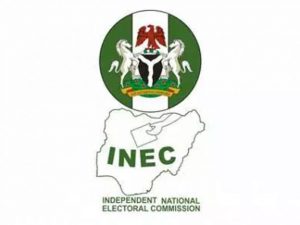Nigeria: Trump Targets International Students As U.S. Revokes 600 Visas

About 600 international students in over 90 colleges and universities have had their visas revoked or their legal status terminated in recent weeks.
The US government has begun revoking the visas of international students in the country, with some of the students randomly arrested and taken into custody.
The development has sparked tension and uncertainty among foreign-born students, including Nigerians, who make up 1.5 per cent of the international student population.
About 600 international students in over 90 colleges and universities have had their visas revoked or their legal status terminated in recent weeks, according to a report by ABC News.
Many of the affected students are from India and China, which together account for more than half of the international student population. So far, no Nigerian student has been identified as having lost their legal status.
The Nigerians in Diaspora Commission (NiDCOM) spokesperson, AbdurRahman Balogun, told PREMIUM TIMES on Tuesday that the commission has not received any complaints from Nigerian students regarding visa revocations or termination of legal status.
“We are aware of the situation, but no Nigerian student has reported being affected so far,” Mr. Balogun said.
Many of the students being targeted are currently on F-1 and J-1 visas. The F-1 visa is issued to international students who have been admitted to accredited US institutions for full-time study.
The J-1 visa, on the other hand, is designed for a broader range of participants, including students, educators, researchers, and professionals, who are part of approved cultural or educational exchange programs.
This visa permits them to study, conduct research, receive training, or showcase unique skills. Once their programme concludes, J-1 holders are expected to leave within 30 days.
Lawsuits against US officials
Officials of the US State Department have accused some of the students of being involved in protest or political activism, using the US Immigration and Nationality Act of 1952 as justification for revoking their visas.
This act allows the deportation of a noncitizen if the Secretary of State determines that their presence or activities in the country could have “potentially serious adverse foreign policy consequences.”
In March, Secretary of State Marco Rubio first confirmed the development, stating that the State Department had revoked the visas of hundreds of international students, targeting those involved in political activism.
“It might be more than 300 at this point. We do it every day. Every time I find one of these lunatics, I take away their visas,” Mr Rubio said at a news conference.
According to media reports, US Immigration attorneys and policy experts said the spotlight on international students reflects the Donald Trump administration’s broader immigration crackdown.
However, some of the students are fighting back. They have filed lawsuits against the Trump administration, claiming that the government violated their rights to due process before revoking their visas.
In lawsuits against the Department of Homeland Security, the students said the government lacked justification for its actions.
Some of the students argued against being singled out for infractions as minor as traffic violations, including some that occurred long ago.
Travel advisory
International students are also scared of embarking on short trips outside the US due to the risk of deportation.
Some colleges have advised their students to postpone their travel plans for spring break.
An international student at the University of Maryland confirmed receiving an advisory from the university warning against travelling outside the country for the holidays.
A similar advice was issued to International Students in several other universities, including Yale, Harvard and Brown University.
This was due to concerns about the new travel ban imposed by the Trump-led administration in March.
The new travel had affected 43 countries globally, and 22 of them were African countries.
The affected countries were categorised under the orange, red and yellow lists. Countries under orange faced the strictest restrictions, and those under yellow were issued a 60-day window.
However, Nigeria was not on the list.
By Premium Times.



